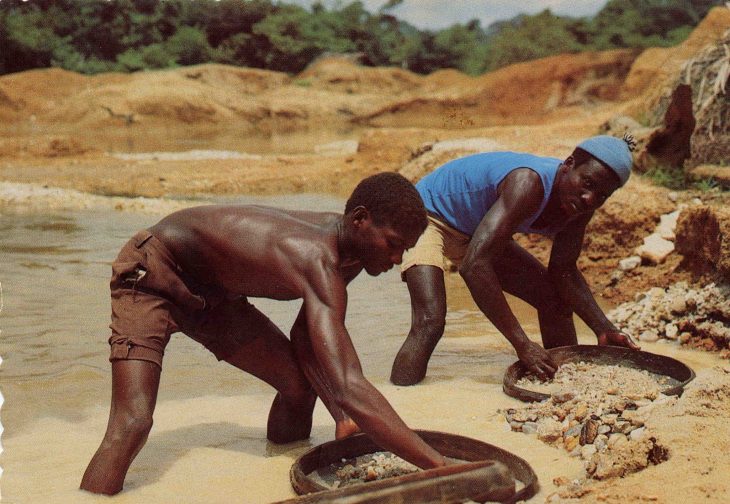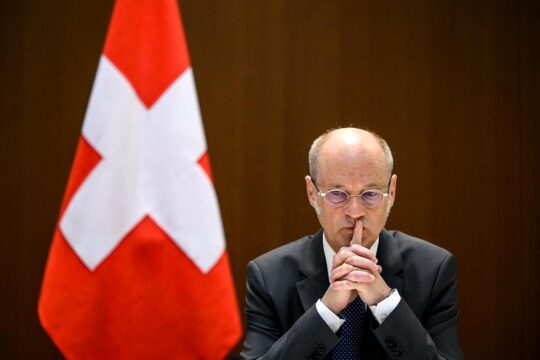In view of the rising number of civilian casualties in armed conflict and the very low number of cases brought against alleged perpetrators of international crimes (genocide, war crimes and crimes against humanity), the work of independent, professional organizations to help document crimes is vital, says Swiss NGO Civitas Maxima in its 2015 annual report. The organization stresses its work with victims and highlights cases it is helping bring to justice, including the first arrest for trading “blood diamonds” as a war crime.
“The most visible outcome of Civitas Maxima’s work in 2015 was the arrest of a US and Belgian businessman in September 2015 in Malaga, Spain for his alleged participation in the trade of blood diamonds from Sierra Leone during the civil war,” says the annual report. “He was extradited to Belgium where he is still detained. This is the very first time that someone has been arrested and indicted for participation in the trade of blood diamonds, qualified as a war crime – pillage – and crime against humanity – forced labor.”
“The most valuable but least visible impact of Civitas Maxima’s work is the impact the documentation work has on the victims that Civitas Maxima represents and the countries where it works,” the report continues. “Being able to talk to qualified and experienced professionals working for Civitas Maxima not only has a therapeutic and important psychological effect on many of the victims, it also provides them with hope that they may see justice one day in the future and with the certainty that they are not alone, that somebody will be fighting for accountability alongside them in the long-term.”
Civitas Maxima was founded in 2012 by its current director Alain Werner to provide “independent legal representation for victims of war crimes and crimes against humanity”. Werner is a Swiss lawyer who has worked for the prosecution at the Special Court for Sierra Leone, represented victims and civil parties at the Extraordinary Chambers in the Courts of Cambodia and at the Hissène Habré trial in Senegal. The name Civitas Maxima comes from “a Latin term used for the legal doctrine that maintains that all human beings, as members of the international community, share certain core values,” the organization explains. “The doctrine thus promotes the idea that the most egregious violations of these values call for a vigorous and equitable response”.
The organization focuses on working with victims, representing them, documenting crimes and transmitting victims’ accounts, with their consent, to competent national and international authorities. It also helps build capacity of local partners such as the Centre for Accountability and Rule of Law (CARL) in Sierra Leone and the Global Justice and Research Project (GJRP) in Liberia, where “for political reasons there is a de facto impunity for crimes committed during the war and several current high level Liberian politicians are connected to these crimes”.
Arrests
“There were 8 arrests by national authorities for international crimes not committed on their territory worldwide over a two-year period in 2014 and 2015,” says the annual report. “In spite of its limited budget and size, Civitas Maxima’s work and the work of its partners led directly to 3 out of these 8 arrests.”
These three arrests were of two Liberians in Belgium and Switzerland, and businessman Desaedeleer in the blood diamonds case.
Michel Desaedeleer, a US and Belgian citizen, was arrested in Spain in 2015 on a European arrest warrant, suspected of enslavement as a crime against humanity and pillage of “blood diamonds” that helped fuel the Sierra Leonean civil war. He was transferred to Belgium, where he has been indicted. The criminal complaint which led to his arrest was based on information collected by Civitas Maxima and its partner in Sierra Leone, the Centre for Accountability and Rule of Law (CARL). Civitas Maxima director Alain Werner explained in an interview last year with JusticeInfo why the case was brought in Belgium and not in Sierra Leone.
This arrest made headlines and could set a precedent. “According to the UN Environmental Program, at least forty percent of recent intrastate conflicts had links to natural resources, and the presence of natural resources makes conflicts twice as likely to recur,” says Civitas Maxima. “Nevertheless, nobody has ever been charged with crimes directly connected to the trade of diamonds from conflict zones as a war crime or crime against humanity. (…) Both the well-publicized arrest and charges have sent the message that the trade of minerals from conflict zones by foreign actors can incur criminal responsibility and does not operate in a space of impunity. A legal precedent could be created if this case is brought to trial.”







